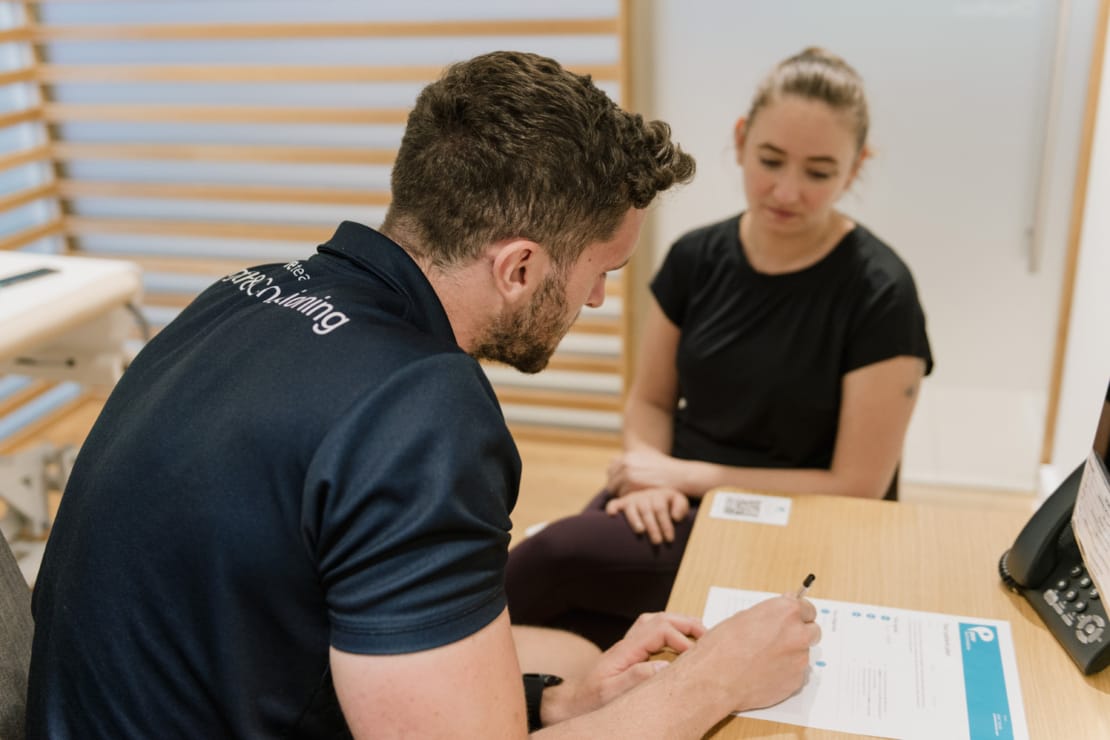Managing Endometriosis Symptoms: Expert Tips for Relief

Clemence Cleave
Nutritionist
- 30 January, 2025
- Women's Health
- 4 min read
Managing Endometriosis Symptoms: Expert Tips for Relief

Living with endometriosis can be a challenging journey, but a healthy, nutrient-rich lifestyle can play an important role in mitigating symptoms and improving your overall wellbeing.
At Pure Sports Medicine, we understand the complex needs of women navigating this condition and are here to provide practical, effective support.
This guide explores the best foods for managing endometriosis, the importance of an anti-inflammatory diet, and how our expert team can help you to take control of your health and wellness.
Understanding Endometriosis and Inflammation
Endometriosis is a chronic condition in which cells resembling those found in the uterine lining grow outside the uterus, often causing severe pain, inflammation, and hormonal imbalances. Symptoms can range from painful periods, pelvic pain, fatigue to digestive issues.
A nutrient-dense diet can help to manage these symptoms effectively. By adopting an anti-inflammatory diet, you can reduce chronic inflammation, ease existing symptoms, support the natural healing process and improve overall quality of life.
“While you can’t cure endometriosis with specific foods, your diet can be a great tool for the management of the symptoms,” explains Clemence Cleave, Nutritionist at Pure Sports Medicine. “Opting for a diet rich in plant-based foods and omega-3s may help reduce chronic inflammation, a well-known driver of endometriosis.”
Adopting an Anti-Inflammatory Diet
An anti-inflammatory diet is focused on the consumption of whole, unprocessed foods to reduce inflammation.
Top foods for managing endometriosis symptoms include the following:
- Lean proteins: Chicken, turkey, plant-based proteins, such as beans and lentils, as well as protein-rich dairy products, including low fat cottage cheese.
- Healthy fats: Omega-3 sources like fatty fish, such as salmon and sardines, olives, walnuts, and flaxseeds can reduce inflammation and support brain health.
- Fermented foods: Probiotics like yoghurt, kimchi, miso and sauerkraut for gut health.
- Fruits and vegetables: This can include a complete variety of colours, tastes and textures, with fruit and vegetables rich in fibre and antioxidants. Emerging evidence suggests that cruciferous vegetables, such as broccoli and kale, may support healthy hormone metabolism when included as part of a balanced diet.
- Whole grains: Oats, wheat and brown rice are popular choices for stabilising blood sugar levels and reducing inflammation.
- Herbs and spices: Turmeric, ginger, garlic, cinnamon and ashwagandha are great for their natural anti-inflammatory properties.
- Herbal teas: Chamomile, green tea, and peppermint tea are good sources of polyphenols, phytochemicals known for their immunomodulatory properties.
Foods to limit or avoid:
- Red and processed meats: beef, lamb, sausages and bacon can be harder to digest, worsening inflammation.
- Refined sugars and carbohydrates: often found in white bread, pasta, pizza dough, and baked goods, these can result in flare ups.
- Alcohol and caffeine: (to consume in moderation), as these can exacerbate endometriosis symptoms.
“Rather than focusing on superfoods, aim for a wide variety of plant-based foods. Rich in polyphenols, plants help modulate chronic inflammation. While blueberries and turmeric are great examples, a diverse diet provides a broader range of these compounds, offering greater anti-inflammatory benefits,” adds Clem.
Recipes for Endometriosis Management
These diverse recipes are delicious and make it easy to incorporate anti-inflammatory foods into your daily routine.
Breakfast:
- Anti-inflammatory smoothie, filled with healthy berries, seeds, spinach, avocado and almond milk.
- Porridge with berries, nuts and cinnamon.
Lunch:
- Salmon and avocado salad with a turmeric and lemon dressing.
- Hearty lentil soup with a side of wholegrain bread.
- Chickpea, sweet potato and cauliflower curry.
Dinner:
- Grilled chicken with roasted sweet potatoes, steamed broccoli and kale.
- Quinoa stir-fry with chicken or tofu, ginger, and mixed vegetables.
Snacks and Desserts:
- Bananas drizzled with honey, cinnamon and dark chocolate.
- Chia seed pudding
- Dark chocolate with a handful of walnuts.
Lifestyle Tips to Complement the Diet
A healthy lifestyle goes together with good nutrition when managing endometriosis.
- Stay Active: Regular, low-impact exercise like swimming, yoga, or Pilates can reduce inflammation, improve mood, and alleviate pain.
- Prioritise Sleep: Aim for consistent, quality sleep. For those with disrupted sleep due to endometriosis, magnesium-rich foods like spinach or almonds, as well as melatonin supplements can support better rest.
- Manage Stress: Incorporate mindfulness, meditation, or gentle stretching into your routine to reduce stress.
When managing chronic inflammation, we often focus on which foods to add to our plate. “However, we sometimes overlook the fact that digestion and inflammation are also influenced by other lifestyle factors, such as physical activity, sleep, and stress management,” notes Clem.
Potential Pitfalls and Overcoming Them
Living with endometriosis will often require navigating a variety of dietary challenges to help manage symptoms effectively.
1. Managing Cravings for Inflammatory Foods
Cravings for foods high in sugar content, processed fats, or refined carbohydrates can be strong, particularly during a flare-up, where you may wish for something easy (or tasty). These foods, however, can exacerbate inflammation and worsen your symptoms.
To counteract this, it’s always best to stock healthy, anti-inflammatory alternatives. For example, dark chocolate instead of sweets, or swap crisps and dip for roasted chickpeas or nuts. Meal prepping can also help reduce reliance on processed snacks and meals throughout the week.
2. Ensuring Balanced Nutrition While Avoiding Trigger Foods
Eliminating common trigger foods such as gluten, dairy, or processed sugar can also lead to nutritional gaps if not done thoughtfully. Incorporate nutrient-dense foods into your diet and routinely track your food intake can help ensure you’re meeting your nutritional needs and identify any ‘trigger’ foods that could hinder your health.
3. Seek Guidance from a Dietitian or Registered Nutritionist (RNutr or ANutr)
It can be overwhelming to maintain a balanced diet independently, particularly if symptoms remain challenging. At Pure Sports Medicine, our expert dietitians and registered nutritionists can help you on your endometriosis journey, and tailor effective meal plans that cater to your needs, identify potential food triggers, and ensure you’re not missing essential nutrients.
Proactively addressing these pitfalls with support and preparation can make a significant difference in managing endometriosis symptoms and improving your overall wellbeing.

Advice
Over the last 20+ years our experts have helped more than 100,000 patients, but we don’t stop there. We also like to share our knowledge and insight to help people lead healthier lives, and here you will find our extensive library of advice on a variety of topics to help you do the same.
OUR ADVICE HUBS See all Advice Hubs
